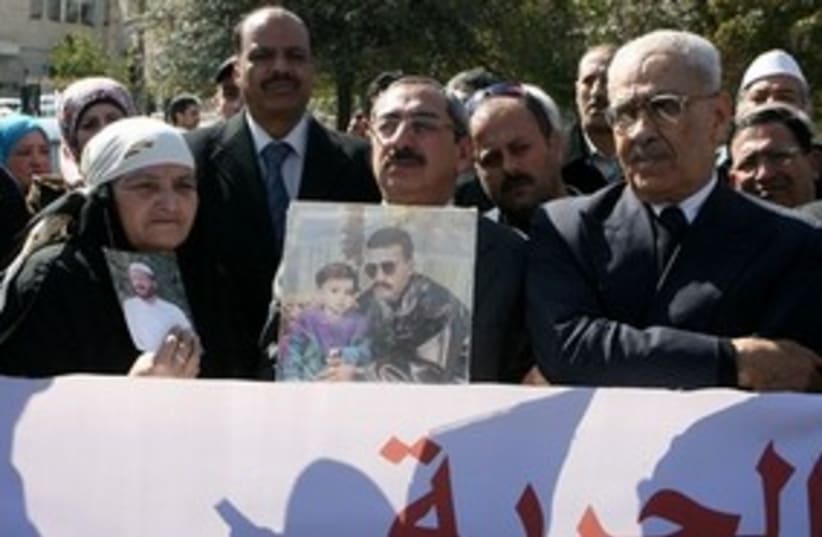RELATED:Jordan minister: Release soldier who shot IsraelisOn Monday, Mjali, who was Daqamseh’s defense lawyer, joined dozens of protesters in Amman calling for the terrorist’s release.Yaakov Hadas, the Foreign Ministry’s deputy director-general for the Middle East and the peace process, told the Jordanian official that Israel was shocked and disgusted by Mjali’s comments, especially coming from the official in charge of law and justice in Jordan.Jordan’s embassy in Tel Aviv has been without an ambassador since the summer, so the conversation was held with the ranking official in the embassy.Hadas said Israel expected an immediate and unequivocal condemnation of the remarks from the Jordanian government.He also said Israel expected the Jordanian government to make clear that it rejected calls for Daqamseh’s release, and that he would continue serving his sentence.Daqamseh was sentenced to life in prison, which in Jordan translates into a 25-year sentence.Israel’s envoy in Jordan, Daniel Nevo, passed on a similar message to the highest levels of the Jordanian government.Foreign Ministry spokesman Yigal Palmor said Mjali’s comments were especially jarring, considering that Israel remembered how the late King Hussein had come to Israel after the shooting to console the families of the murdered girls.“We remember very well how King Hussein took a humane step and came to Israel to console the mourning families, went to the houses of mourning, sat on the ground and spoke to the parents.This was an act that touched everyone – the humanity of that action is something we can’t forget,” he said. “This should not be erased, and the Jordanian government must distance itself as clearly as possible from these calls.”Meanwhile, students from the AMIT “Shahar” school in Beit Shemesh – the school that the seven victims attended – wrote a strongly worded letter to the Jordanian Embassy to protest Mjali’s efforts to have the killer released.“We live and study every day with the memory of the seven girls in our hearts. If not for the same murderer your justice minister wants to see free, those girls would now have children of their own going to school and kindergarten,” the students wrote.“Justice and morality demand such a man, who lacks human dignity, stay in jail and not see the light of day,” the letter stated.The seven girls were killed by the Jordanian soldier while on a class trip to the “Island of Peace” in the Jordan Valley 14 years ago.Students at the school, which is named after the victims, also opened a Facebook page, where they are soliciting signatures for their letter.
Jerusalem Post staff contributed to this report.
